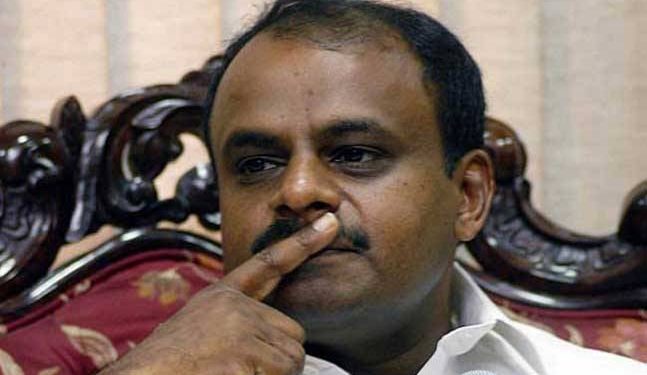Karnataka Chief Minister HD Kumaraswamy was caught on camera instructing someone (apparently a police officer according to reports) over phone to mercilessly kill the people behind the murder of JD(S) leader H Prakash in Mandya district of south Karnataka. The chief minister later went on to explain that it was only an emotional outburst and that he intended to say “smoke out” and not “shoot out”. Explanations notwithstanding, Kumaraswamy’s statement is a giveaway of misuse of power. The country is not alien to such actions by the powerful. The case of the anti-Sikh riots of 1984 and what happened to the people who orchestrated them from behind screens are standing examples. There are other examples of misuse of political power in the Sohrabuddin Sheikh encounter case and in the incidents of violence that shook Gujarat. Viewers of Indian commercial films are also amply exposed to storylines that depict powerful politicians giving out orders just like Kumaraswamy to eliminate their adversaries. Kumaraswamy said his outburst was caused by the way the killers had misused bail. He said the quartet was serving sentence for two murders and had stepped out on bail only two days before they killed Prakash. While the chief minister may deny that he did not have any intention of issuing an order to kill the four murderers, who chased Prakash’s vehicle on bikes, waylaid it, hacked the JD (S) leader with machetes and left him fatally wounded in his SUV, his remark points to the possibility of a misinterpretation of a bad nexus in operation. Even if Kumaraswamy’s statement is discounted as a mere slip and an emotional outburst as he claims, the fact remains that politics and crime continue to be intertwined to the extent that they are inextricable from each other today. The culture of violence has received a fillip under the present government with incidents ranging from mob lynching to political murders ruling the roost. The root of the problem lies in the widening inequalities plaguing the society. There have been frightening reports that India is showing the signs of slipping into a civil war within the next three to four years going by the way things are headed in the country. The country needs to realise that it cannot progress without distribution of wealth in a way that it makes people participate in its growth process. It needs to skill Indians and also provide vocations to constructively employ their energies so that they need not turn to crime as a means to survival. In a world that is now enabled by very many ways to connect peoples and services around the world seamlessly through different kinds of networks, the creation of opportunities should not be as big a problem for the country as it may have been in the past. India needs to embrace the change around the world and ensure that it becomes part of new paradigms of energy generation and to distribute resources and grow through peace and non-violence. This cannot be achieved when we, ourselves, denigrate our past without proving any great achievements in the present. Indians bad mouthing Mahatma Gandhi resulted in the anti Gandhi tirade in a university in Ghana, Africa. Pulling down idols is easy. Removing statues is easier. Being worthy ourselves is the toughest. When we have not achieved any great heights today because of ourselves but for what was done for us in the past by others, we must always acknowledge. No race shines by becoming intolerant. Gratitude pays for a nation as a whole.
Incumbents Thrive
I n what appears to be a pro-incumbency mandate, the Mahayuti coalition led by the BJP swept the Maharashtra Assembly...
Read more





































